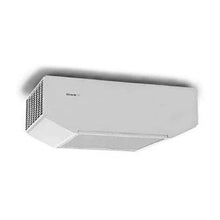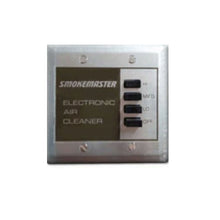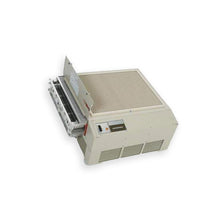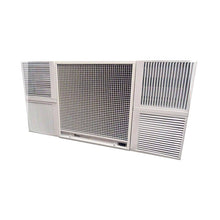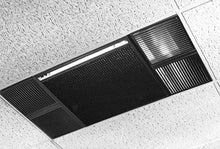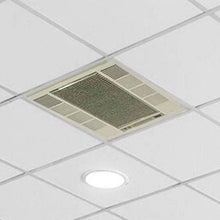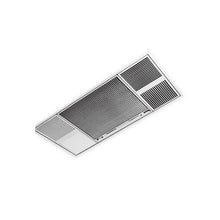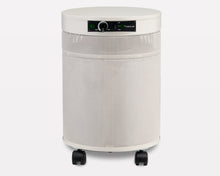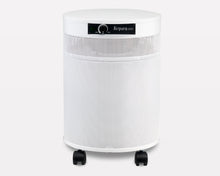Clearing the Air: Protecting Your Health from Cigar Smoke with Commercial Air Purifiers

The rich aroma and social ritual of enjoying a cigar are traditions held by many. However, beneath the fragrant plumes lies a complex mixture of airborne particulates and gases that can pose significant health risks, not just to the smoker but also to those nearby. Understanding these risks and knowing how to mitigate them is crucial for creating healthier environments, especially in commercial settings where secondhand smoke can affect a wider population. At Commercial Air Purifiers, LLC, we are dedicated to providing effective solutions for cleaner indoor air, and we believe in empowering individuals and businesses with the knowledge to make informed decisions about their air quality. This comprehensive guide delves into the health hazards of cigar smoke and explores how high-quality commercial air purifiers can play a vital role in protecting against these harmful particulates.
The Unseen Dangers: Understanding the Health Risks of Cigar Smoke
Cigar smoke is far more complex and, in many ways, as dangerous as cigarette smoke. It contains a potent cocktail of over 7,000 chemicals, many of which are toxic and known carcinogens (cancer-causing agents). These substances include nicotine, tar, carbon monoxide, formaldehyde, benzene, and heavy metals. While the act of smoking a cigar may differ from smoking cigarettes (often less frequent inhalation), the sheer volume of smoke produced by a single cigar is significantly greater. This means that even without direct inhalation, the surrounding air can become heavily laden with harmful particulates.
The health risks associated with direct cigar smoking are well-documented. Studies have linked it to an increased risk of various cancers, including lung, larynx, esophagus, mouth, and bladder cancers. Cardiovascular diseases, such as heart disease and stroke, are also more prevalent among cigar smokers. Furthermore, cigar smoking can lead to chronic obstructive pulmonary disease (COPD), including emphysema and chronic bronchitis.
However, the dangers extend beyond the individual smoker. Secondhand cigar smoke, the smoke involuntarily inhaled by those around the smoker, carries many of the same toxic compounds. Exposure to secondhand smoke has been classified as a "known human carcinogen" by the U.S. Environmental Protection Agency (EPA) and the International Agency for Research on Cancer (IARC). It poses significant health risks, particularly to vulnerable populations such as children, the elderly, and individuals with pre-existing respiratory or cardiovascular conditions.
According to a report by the National Cancer Institute (NCI) titled "Cigars: Health Effects and Trends," secondhand cigar smoke contains higher concentrations of some toxic chemicals compared to secondhand cigarette smoke. This is due to factors such as the larger size of cigars, longer burning times, and the fact that the tobacco may be less processed. The NCI report emphasizes that there is no safe level of exposure to secondhand smoke.
For businesses, particularly those in hospitality or shared workspaces, the presence of cigar smoke can create an unhealthy and uncomfortable environment for non-smokers. It can lead to complaints, reduced productivity, and potential liability issues. Addressing this issue proactively is not just a matter of compliance but also a commitment to the well-being of everyone who occupies the space.
The Invisible Threat: Harmful Particulates in Cigar Smoke
Cigar smoke is composed of a complex mixture of gases and particulate matter. These particulates are microscopic solid particles and liquid droplets suspended in the air. They vary in size, and the smaller the particle, the deeper it can penetrate into the respiratory system, posing a greater health risk.
The particulate matter in cigar smoke includes:
-
PM2.5: These are fine inhalable particles with diameters that are generally 2.5 micrometers and smaller. Due to their small size, PM2.5 can travel deep into the lungs and even enter the bloodstream, contributing to respiratory and cardiovascular problems.
-
Ultrafine Particles (UFPs): These are even smaller than PM2.5, with diameters less than 0.1 micrometers. Their tiny size allows them to penetrate cell membranes and potentially cause systemic inflammation and other health issues.
-
Tar: A sticky residue containing numerous carcinogenic compounds that can accumulate in the lungs.
These harmful particulates are not just an irritant; they represent a significant health hazard. Exposure to fine and ultrafine particulate matter has been linked to a wide range of adverse health effects, including:
-
Respiratory Issues: Aggravation of asthma, bronchitis, and other respiratory conditions. Increased risk of respiratory infections.
-
Cardiovascular Problems: Increased risk of heart attacks, strokes, and irregular heartbeats.
-
Cancer: Exposure to carcinogenic particulates increases the risk of various cancers.
-
Developmental Issues: In children, exposure to secondhand smoke can lead to reduced lung function and increased risk of respiratory illnesses.
The lingering nature of these particulates is also a concern. Cigar smoke can leave behind residue on surfaces, known as thirdhand smoke, which can continue to expose individuals to harmful chemicals over time. Ventilation alone is often insufficient to effectively remove these fine and ultrafine particulates from the air.
The Solution: How Commercial Air Purifiers Combat Harmful Cigar Smoke Particulates
Given the significant health risks associated with cigar smoke particulates, implementing effective air purification strategies is crucial. Commercial air purifiers designed with advanced filtration systems can play a vital role in removing these harmful substances from indoor environments.
At Commercial Air Purifiers, LLC, our units are engineered to capture a wide range of airborne contaminants, including the fine and ultrafine particulates found in cigar smoke. The key to their effectiveness lies in their multi-stage filtration systems, which typically include:
-
Pre-filters: These initial layers capture larger particles such as dust, pet dander, and hair, extending the life of the subsequent filters.
-
Activated Carbon Filters: These filters are highly porous and designed to adsorb gases, odors, and volatile organic compounds (VOCs) present in cigar smoke. A substantial amount of high-quality activated carbon is essential for effective odor and gas removal.
-
HEPA Filters (High-Efficiency Particulate Air): These are the workhorses of particulate filtration. True HEPA filters are certified to capture at least 99.97% of airborne particles as small as 0.3 microns in diameter. This includes the PM2.5 and many ultrafine particles found in cigar smoke.
The effectiveness of a commercial air purifier in dealing with cigar smoke depends on several factors, including its Clean Air Delivery Rate (CADR), the size of the room it's designed to handle, and the quality and type of filters used. A higher CADR indicates that the purifier can clean a larger volume of air more quickly.
Our experience at Commercial Air Purifiers, LLC, has shown that businesses and individuals looking to mitigate the effects of cigar smoke should prioritize air purifiers with:
-
High CADR ratings: To ensure rapid and effective air cleaning in the intended space.
-
True HEPA filtration: For the efficient removal of fine and ultrafine particulates.
-
Significant activated carbon filtration: To neutralize the strong odors and harmful gases present in cigar smoke.
-
Multiple fan speed settings: To allow for adjustable levels of purification based on the intensity of smoke.
By continuously circulating and filtering the air, commercial air purifiers help to significantly reduce the concentration of harmful cigar smoke particulates, creating a cleaner and healthier indoor environment for everyone.
Real-World Impact: The Benefits of Air Purification for Cigar Smoke Mitigation
The implementation of commercial air purifiers in environments where cigar smoke is present offers numerous benefits:
-
Protection of Non-Smokers: By removing secondhand smoke particulates, air purifiers help to safeguard the health of individuals who are not smoking but are exposed to the harmful effects.
-
Odor Control: The strong and lingering smell of cigar smoke can be unpleasant and permeate fabrics and surfaces. Activated carbon filters effectively adsorb these odor-causing molecules, leading to a more comfortable environment.
-
Improved Air Quality: Reducing the overall concentration of particulate matter and gases contributes to better indoor air quality, which can have positive impacts on respiratory health and overall well-being.
-
Enhanced Comfort: A smoke-free environment is generally more comfortable for everyone, potentially improving customer satisfaction in commercial settings and creating a more pleasant living space.
-
Potential for Reduced Liability: Businesses that proactively address air quality concerns related to cigar smoke may reduce their potential liability associated with exposing non-smokers to harmful substances.
Consider a scenario where a private club permits cigar smoking in designated areas. By installing high-quality commercial air purifiers with robust HEPA and activated carbon filters, the club can significantly minimize the migration of smoke and odors to non-smoking areas, ensuring a more enjoyable experience for all members. Customer feedback from various establishments using our air purifiers in similar situations often highlights a noticeable improvement in air quality and a reduction in smoke-related complaints.
Furthermore, advancements in air purification technology have led to the development of smart features such as air quality sensors that can automatically adjust fan speeds based on the level of pollutants detected. This ensures optimal performance and energy efficiency.
Choosing the Right Air Purifier: Key Considerations
Selecting the appropriate commercial air purifier for cigar smoke mitigation requires careful consideration of several factors:
-
Room Size: Ensure the purifier's CADR rating is suitable for the size of the space where it will be used. A purifier with a CADR that is too low will not effectively clean the air in a large room.
-
Filtration System: Verify the presence of a true HEPA filter and a substantial amount of high-quality activated carbon. Consider models with multiple stages of filtration for comprehensive air cleaning.
-
Air Changes Per Hour (ACH): This indicates how many times the air in a room is completely filtered per hour. For environments with significant cigar smoke, aim for an ACH of at least 4-6 to ensure effective pollutant removal.
-
Noise Level: Commercial air purifiers can operate for extended periods, so consider the noise level, especially in noise-sensitive environments. Look for models with quiet operation at lower fan speeds.
-
Maintenance: Factor in the cost and frequency of filter replacements. Ensure that replacement filters are readily available.
-
Certifications: Look for certifications from reputable organizations such as the Association of Home Appliance Manufacturers (AHAM), which verifies the CADR ratings of air purifiers.
At Commercial Air Purifiers, LLC, our team of experts can assist you in assessing your specific needs and recommending the most suitable air purification solutions for your environment. We understand that each situation is unique, and we are committed to providing tailored advice and high-quality products.
Taking Control of Your Air: Practical Steps and Recommendations
Beyond investing in commercial air purifiers, there are other practical steps that can be taken to further mitigate the risks associated with cigar smoke:
-
Designated Smoking Areas: If possible, establish well-ventilated designated areas for cigar smoking that are separate from non-smoking areas.
-
Ventilation: While not a complete solution for particulate removal, increasing ventilation by opening windows or using exhaust fans can help to dilute smoke levels. However, this can also introduce outdoor pollutants and may not be feasible in all weather conditions.
-
Education and Awareness: Educate individuals about the health risks of cigar smoke and the benefits of maintaining clean indoor air.
-
Regular Cleaning: Regularly clean surfaces to remove thirdhand smoke residue.
For businesses, implementing a clear policy regarding cigar smoking and actively investing in air purification demonstrates a commitment to the health and well-being of employees and customers.
Conclusion: Breathing Easier with Effective Air Purification
Cigar smoke poses significant health risks due to the complex mixture of harmful particulates and gases it contains. While personal choices regarding smoking are individual, the impact of secondhand smoke on others is a public health concern. Commercial air purifiers equipped with true HEPA and activated carbon filters offer a powerful solution for mitigating these risks by effectively removing fine and ultrafine particulates, as well as odors and gases, from indoor environments.
At Commercial Air Purifiers, LLC, we believe that everyone deserves to breathe clean, healthy air. By understanding the dangers of cigar smoke and implementing effective air purification strategies, we can create safer and more comfortable spaces for all. We encourage individuals and businesses to consider the benefits of investing in high-quality commercial air purifiers as a proactive step towards protecting their health and well-being.
For more information on our range of commercial air purifiers and how they can help address cigar smoke concerns, please visit our website or contact our team of air quality specialists.
Sources:
National Cancer Institute. (2010). Cigars: Health Effects and Trends (Smoking and Tobacco Control Monograph No. 9). Bethesda, MD: U.S. Department of Health and Human Services, National Institutes of Health, National Cancer Institute. [Link to a relevant NCI report or similar authoritative source about cigar smoke health risks].

